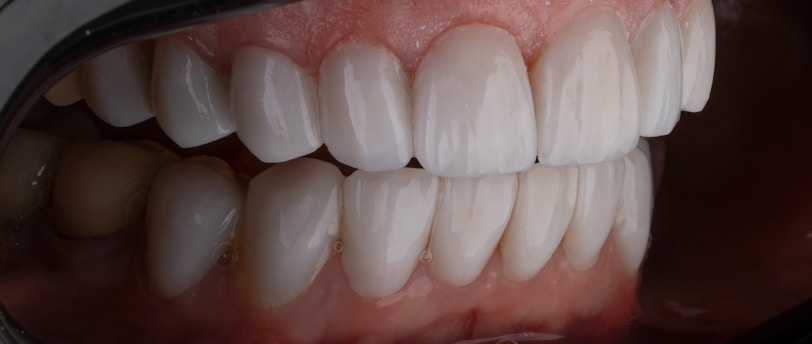Tuesday: Open for Emergencies (By Appointment Only)
Effective Treatments for Infection Around Dental Implants
Infections around dental implants, known as peri-implantitis, can lead to serious complications if left untreated. This blog covers the causes, symptoms, and most effective treatment options for managing infections around implants. Learn about professional treatments such as deep cleaning, antibiotics, laser therapy, and surgical interventions, as well as preventative measures to maintain implant health. If you suspect an infection, Dr. Glenn Hendricks Dental Clinic in Mississauga offers expert care to protect your dental implants and overall oral health.
2/10/20254 min read


Understanding Dental Implant Infections
Dental implant infections, clinically known as peri-implantitis, are inflammatory conditions that affect the soft and hard tissues surrounding an implant. These infections can arise due to various factors, including bacterial contamination during the initial placement procedure, poor oral hygiene, or even pre-existing conditions that compromise the immune system. It is crucial to recognize and address infections promptly, as they can lead to severe complications such as implant failure, bone loss, and systemic health issues.
The manifestation of a dental implant infection typically begins with noticeable symptoms. Patients often report swelling in the area surrounding the implant, accompanied by pain or discomfort. This discomfort may range from mild irritation to severe pain, indicating the degree of inflammation present. Additionally, unusual discharge or pus may occur, suggesting that bacteria are proliferating within the tissues. These clinical signs serve as essential indicators that professional dental intervention is necessary.
In the context of local implications, the bacterial strains prevalent in Mississauga significantly contribute to the risk of dental infections. Research indicates that specific bacteria, such as Porphyromonas gingivalis and Aggregatibacter actinomycetemcomitans, are commonly associated with peri-implantitis. Understanding the specific pathogens in a given area is essential for healthcare providers in devising appropriate treatment protocols. Practicing effective oral hygiene and regular dental visits can significantly reduce the risk of encountering these infections.
Overall, dental implant infections pose a substantial threat if not managed properly. Awareness of the symptoms and causes enables individuals to act swiftly, while knowledge of local bacteria can better inform preventative measures. Addressing these infections in their early stages is vital, as timely intervention plays a key role in the long-term success of dental implants.
Effective Non-Surgical Treatments
Non-surgical treatments play a pivotal role in managing infections around dental implants. Initially, these therapies center on the use of antibiotics, which are prescribed to combat bacterial growth and mitigate the infection without the need for invasive procedures. A common choice includes broad-spectrum antibiotics, which are effective against various pathogens. The selection of appropriate antibiotics depends on the specific bacteria identified through clinical assessment or culture tests. In some cases, a dental professional may administer antibiotics concurrently with topical antiseptics to enhance the effectiveness of the treatment.
Topical antiseptics, applied directly to the affected area, can serve as an adjunct to systemic medications, targeting localized infections effectively. Solutions such as chlorhexidine mouthwash are widely recommended due to their antibacterial properties, promoting a healthier oral environment. Regular use of these antiseptics can significantly reduce harmful microbial load and thus contribute to the recovery of the surrounding tissue.
Additionally, analgesics may be prescribed to manage discomfort and inflammation linked to the infection. These medications not only alleviate pain but also help in maintaining a patient’s quality of life during the healing process. Patients are often advised about the importance of adhering to medication schedules and instructions to ensure the best outcomes.
Moreover, maintaining robust oral hygiene practices remains crucial in preventing infection recurrence. Patients should be encouraged to engage in meticulous brushing and flossing, while regular visits to dental professionals for cleanings can also help monitor implant health. Effective communication between patients and their dental providers about symptoms and treatment efficacy is essential in successfully managing and eliminating infections surrounding dental implants.
Surgical Options for Treating Implant Infections
In cases where dental implant infections are severe and not responsive to conservative treatments, surgical intervention may be necessary. Among the surgical options available, debridement and implant removal are the most commonly performed procedures. Debridement involves the thorough cleaning of the infected area around the dental implant, removing necrotic tissues, bacteria, and any debris that may hinder the healing process. This procedure is generally considered when there is considerable inflammation but the implant itself is still salvageable.
However, if the infection has progressed to a point where the implant cannot be preserved, complete removal of the implant may be required. This decision is typically made based on factors such as the extent of the infection, the overall health of the surrounding bone and tissue, and the implant's stability. In some cases, bone grafting may be necessary after the implant's removal to prepare the site for a potential future replacement implant.
The recovery process after surgical intervention can vary significantly based on the type of procedure performed and the patient's individual circumstances. It is essential for patients to follow their dental professional's post-operative care instructions meticulously. Common recommendations often include maintaining good oral hygiene, managing pain with prescribed medications, and attending follow-up appointments to monitor the site of surgery. Additionally, avoiding smoking and other factors that could compromise recovery is crucial.
Ultimately, consulting with an experienced dental professional is vital when faced with an implant infection. They will evaluate the specific circumstances and recommend the most appropriate surgical approach to promote healing. With the right treatment, many patients can successfully recover from dental implant infections and maintain healthy oral function.
Preventative Measures and Seeking Local Expertise
Preventative care is essential for maintaining oral health, especially for individuals with dental implants. Implementing a consistent oral hygiene routine can significantly reduce the risk of infections surrounding dental implants. Brushing teeth at least twice a day with a fluoride toothpaste and utilizing an antibacterial mouthwash can help minimize plaque buildup, which is a common precursor to infections. Additionally, using a soft-bristled toothbrush helps protect the gums and implants while effectively removing food particles and plaque.
Flossing daily is equally important in a dental hygiene regimen. For individuals with dental implants, specialized floss or interdental brushes may be required to clean between the implants and surrounding teeth effectively. This practice helps to prevent the accumulation of bacteria and plaque, thus lowering the chances of infection. Furthermore, incorporating regular dental cleanings into your health routine is vital. Professional cleanings not only remove tartar and plaque buildup that regular brushing may miss, but they also allow dental professionals to monitor the health of the gums and the integrity of the implants.
Seeking local expertise is paramount in ensuring the health of your dental implants. Dental practitioners understand the unique challenges that can arise with implants, and they are equipped with the knowledge to suggest personalized preventative measures tailored to your specific needs. For residents of Mississauga, Dr. Glenn Hendricks offers unparalleled expertise in dental care, focusing on both restorative and preventative treatments. Regular check-ups can provide an opportunity for early detection of any potential issues, thus facilitating timely intervention and minimizing complications.
Taking proactive steps in oral hygiene and maintaining regular visits to a dental professional significantly contribute to preventing infections around dental implants. Readers are strongly encouraged to contact Dr. Glenn Hendricks' clinic in Mississauga to ensure optimal dental health and receive expert guidance on effective preventative measures.
Dr. Glenn Hendricks
Exceptional dental care in a friendly atmosphere.
CONTACT US
LETS CONNECT!
(905) 569-0777
© 2025. All rights reserved.
